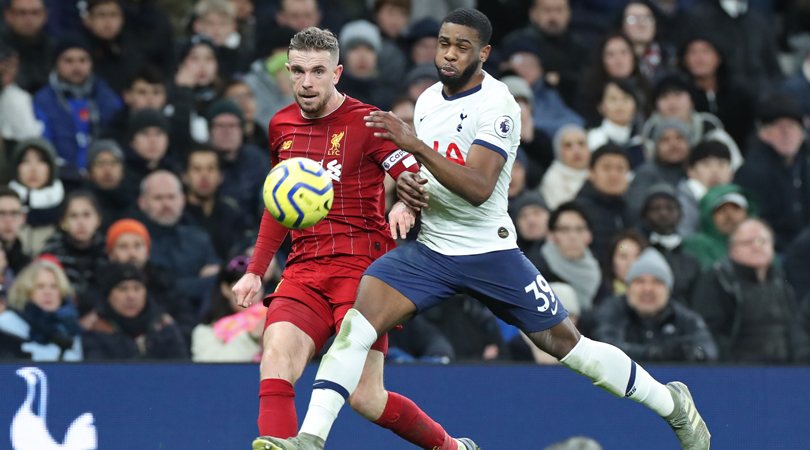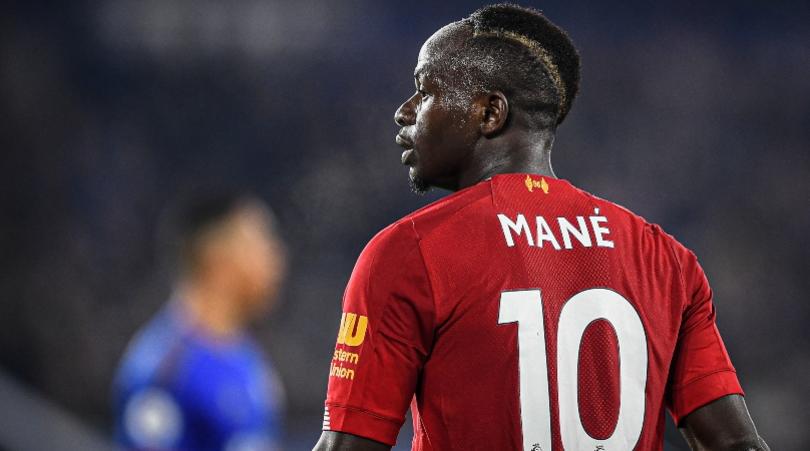This Premier League winter break isn't about player welfare. So why do we have it?
The Premier League winter break isn't so much a chance for clubs to recharge, but another opportunity to fill television schedules

Whether Jurgen Klopp was right to stay away from Liverpool’s FA Cup replay with Shrewsbury this week is a complicated issue. Most likely, Klopp was making a good point, but at the wrong moment and in the wrong way.
“So the situation is the following what we said, we got a letter last April from the Premier League that they asked us to respect the winter break and not organise any international friendlies or competitive games, so we did that," the Liverpool manager explained.
"We respected the winter break. So we will be in the winter break and in two weeks’ time our youngsters will play against Shrewsbury at Anfield. That’s the solution.”
"The Premier League asked us to respect the winter break. That’s what we do. If the FA doesn’t respect that, then we cannot change it. We will not be there.”
He came across as a brattish and petulant. Because Shrewsbury paid a financial cost for Liverpool’s de-emphasised approach to the FA Cup, he’s also been cast as a bit of villain. It’s unfortunate, because – really – he’s been one of the loudest voices on the right side of an important argument. Klopp, along with other high-profile managers such as Pep Guardiola and Jose Mourinho, recognises what football’s powerbrokers are prepared to ignore. That the game’s greed is propelling it towards crisis.
With that in mind, Klopp’s stand was entirely rational; this first attempt at a winter break has been a mess and that reality transcends how it affected Liverpool specifically.
This column has dealt with player welfare before, specifically in relation to football’s congested calendar. Fundamental to the sport’s future is the recognition that tournaments and tours have to be retracted, not expanded, and until the penny drops – or until the pennies stop mattering above everything else – winter breaks will just be a form of appeasement, rather than an actual solution.
Get FourFourTwo Newsletter
The best features, fun and footballing quizzes, straight to your inbox every week.
When players are travelling thousands and thousands of miles a season, sometimes across multiple time-zones every other month, a week-and-a-half's rest is rather incidental. Like throwing a snowball at an avalanche, it represents the illusion of a response and little else. But that doesn’t mean that a winter break should become a regular part of the calendar, or that it shouldn’t be ring-fenced and protected.
Over the next 14 days, 10 Premier League fixtures will be staggered across two weekends. All of those fixtures will be televised, though. Not one will occur during the traditional 3pm kick-off time and, as ever, that’s left some supporters having to make absurd journeys.
Everton against Crystal Palace will kick-off at 12.30pm this Saturday, for instance. Travelling to south London to Merseyside is a train journey of at least three-and-a-half hours. A week later, Southampton host Burnley at the same time. That’s an even longer journey. And, in what is becoming a very repetitive situation, Newcastle’s fans will find themselves heading home from London on Sunday February 16, after their 4.30pm kick-off against Arsenal.
At first glance, these may seem like separate arguments – and they are, really, but for the obvious commonality. Television rules. Where there is a schedule to fill, everything else comes second. Including, in this instance, the welfare of footballers.
And we’re playing on a Sunday with a champions league game, followed by the biggest game of the season in the next week, thus totally negating any benefit of the break. This is a TV ploy and has nothing to do with the wellbeing of players— Adam Nathan (@adamdnathan) February 6, 2020
Because this isn’t a winter break, is it? Or, at least, if it is, it’s one which has been designed around the needs of television and finessed to suit the competition’s stakeholders. That characterises an attitude which lies at the heart of the problem: the appetite for solutions is determined by what broadcasters are willing to tolerate and the momentum for expansion is driven by the same deference.
As the tweet above mentions, the benefits of Tottenham’s hiatus, already shortened by their FA Cup replay with Southampton, will be further eroded by moving their game with Aston Villa to the Sunday, thereby shortening their recovery time ahead of the Champions League tie with RB Leipzig. If ever a situation demonstrated that the Premier League don't really understand the reasoning behind their own initiative, then it's that.
On the one hand, it’s absolutely right to say that the biggest problems within this area are being caused on the macro level, by the growth of the game’s industrial complex and decisions made in smoke-filled rooms. On the other, though, that’s no justification for how half-hearted some of the problem-solving at lower levels continues to be.
Particularly in England, where priorities remain in all the wrong places.
While you’re here, why not take advantage of our brilliant subscribers’ offer? Get the game’s greatest stories and best journalism direct to your door for only £12.25 every three months – less than £3.80 per issue! Save money with a Direct Debit today
NOW READ
EXCLUSIVE Andres Iniesta: I pleaded with Pep Guardiola to stay true to beliefs at Barcelona
QUIZ Can you name the home stadium of every club in the Premier League and Football League?
GUIDE Premier League live stream best VPN: how to watch every game from anywhere in the world
Seb Stafford-Bloor is a football writer at Tifo Football and member of the Football Writers' Association. He was formerly a regularly columnist for the FourFourTwo website, covering all aspects of the game, including tactical analysis, reaction pieces, longer-term trends and critiquing the increasingly shady business of football's financial side and authorities' decision-making.

